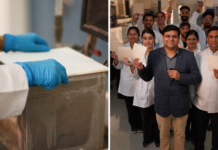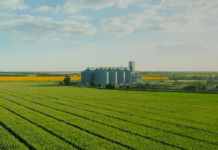
ADM, a global provider of sustainable agriculture supply chains, is fostering sustainable farming practices through a strategic partnership with Swayam Shikshan Prayog (SSP), a non-governmental organization dedicated to empowering women in low-income, climate-threatened communities. The core of this collaboration is SSP’s innovative Women-led Climate Resilient Farming (WCRF) model—an empowering force that enables women to act as influential change agents, driving the adoption of food-secure practices on their farms.
Funded by ADM, the project kicked off last December and is scheduled to run for a year, supporting some 1,500 women farmers across 30 villages in Maharashtra. In the face of climate change in India, where erratic weather conditions have wiped out crops across an area of 9.4 million hectares in Maharashtra1, small farmers in the region, especially women, face struggles, including crop failures and limited resources. Yet even among adversity, women’s roles in agriculture remain crucial and transformative.
“While the WCRF model is centered on Marathwada in the Indian state of Maharashtra, we recognize the broader challenges across India and have incorporated our philosophy and practices into various corporate social responsibility programs since 2019,” said Amrendra Mishra, country manager of India and managing director of Oilseeds at ADM. “Recognizing the profound impact of climate change on the livelihoods of small and marginal farming households in the region, ADM is committed to driving positive change and resilience. Through comprehensive training and the promotion of economic and social resilience, we aspire to contribute to the enduring sustainability of women and their households. Our efforts focus on improving productivity, increasing income, enhancing family health and nutrition, and building resilience for a more robust and secure agrarian community.”
Through the WCRF model, ADM aims to equip women farmers with the necessary tools and knowledge for climate-resilient farming practices. The project not only addresses environmental concerns but also empowers communities from within, paving the way toward a sustainable and food-secure future for all involved. The WCRF model centers around four key components: empowerment, food security, livelihoods, and natural resources.
To implement this model effectively, SSP has established a supportive network that involves collaboration with the government, agro-tech partners, training partners, and knowledge and resource partners. On the ground, Krishi Samvad Sahayak (KSS), an agriculture conversation facilitator, plays a pivotal role, serving as a bridge between the model’s network and women farmers by disseminating the model, ensuring constant communication, and providing support for the women farmers involved.
“SSP has been working closely with ADM for the past two years, and together we have embarked on meaningful initiatives that brought positive results,” said Upmanyu Patil, director of programs at SSP. “In our first year, we built 100 farm ponds in Dharashiv District and developed water conservation plans for 100 villages. In the current year, we are dedicated to promoting climate-smart agriculture reaching out to 30 villages and 1,500 farmers in the Marathwada region. Leveraging ADM’s ability to implement and scale as an industry leader, we believe that the potential for collaboration is vast. Collectively, we can support market linkages, ensure access to government schemes, and advance water-efficient irrigation practices and crops, supporting and empowering local female farmers to become change makers in agriculture.”
IndiFoodBev — authentic, impactful and influential
An English-language food and beverage processing and packaging industry B2B platform in print and web, IndiFoodBev is in its third year of publication. It is said that the Indian food and beverage industries represent approximately US$ 900 billion in revenues which implies more than 20% of the country’s GDP. Eliminating the wastage on the farmside can help to deliver more protein to a higher number of the population apart from generating sizable exports. The savings in soil, seeds, water, fertilizer, energy and ultimately food and nutrition could be the most immense contribution that country is poised to make to the moderation of climate change.
To improve your marketing and grow sales to the food and beverage processing and packaging industry, talk to us. Our research and consulting company IppStar [www.ippstar.org] can assess your potential and addressable markets in light of the competition. We can discuss marketing, communication, and sales strategies for market entry and growth.
Suppliers and service providers with a strategy and budget for targeted marketing can discuss using our hybrid print, web, video, and social media channels to create brand recognition linked to market relevance. Our technical writers are ready to meet you and your customers for content.
The second largest producer of fruit and vegetables in the world is continuously expanding processing capacities and delivery systems with appropriate innovative technologies. We cover product and consumer trends, nutrition, processing, research, equipment and packaging from farm to thali. Get our 2025 media kit and recalibrate your role in this dynamic market. Enhance your visibility and relevance to existing markets and turn potential customers into conversations. Ask for a sample copy of our bi-monthly in print or our weekly IndiFoodBev eZine each Wednesday.
For editorial info@ippgroup.in — for advertisement ads1@ippgroup.in and for subscriptions subscription@ippgroup.in
Naresh Khanna – 10 February 2025
Subscribe Now










